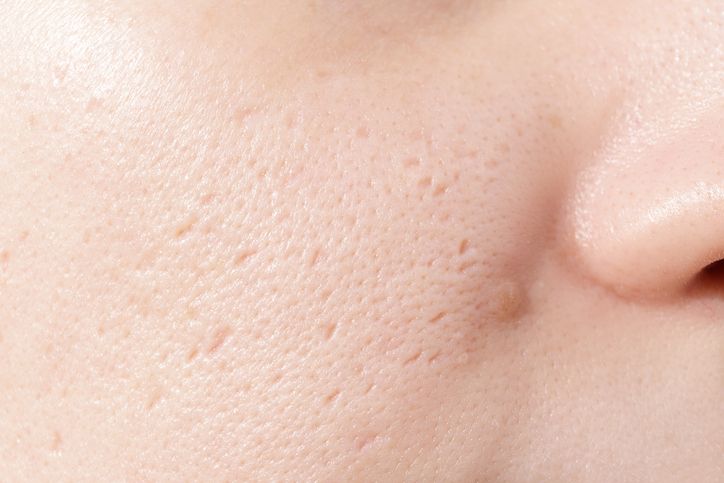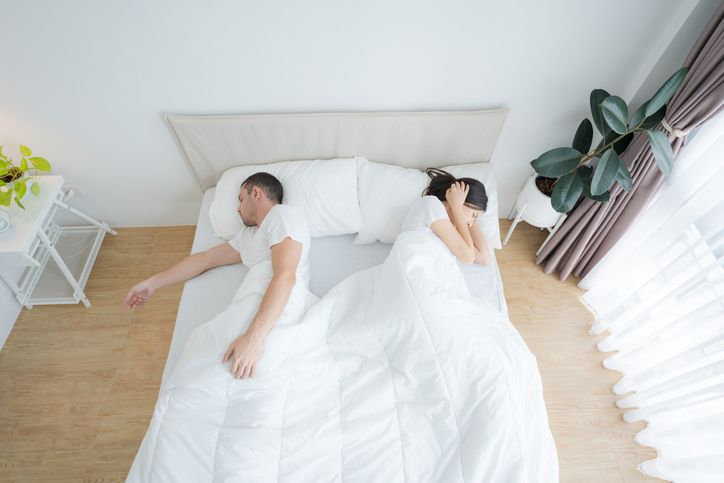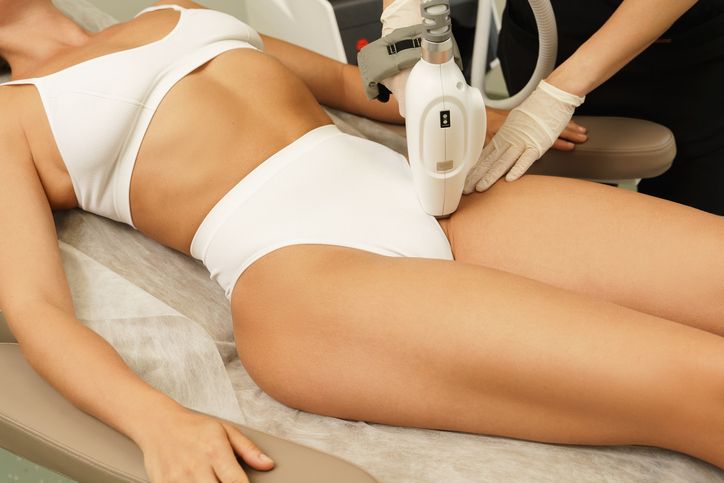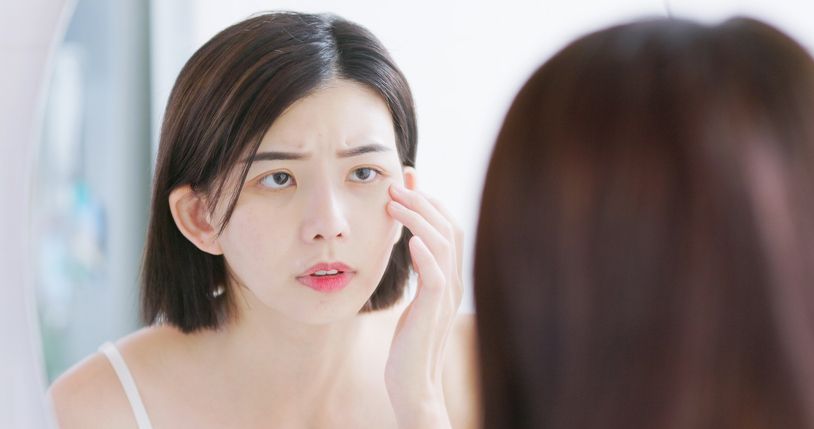- Home
- Trend
- Weight Loss Strategies
- Acne Tips
- Hair Health Information
- Blemish Removal Tips
- Acne Scar Removal Tips
- Muscle Building Techniques
- Intimate Care Tips
- Postpartum Intimate Care
- Eye Bags Wiki
- Tips for Face Slimming
- Secret of Permanent Hair Removal
- Breast Enlargement Tips
- Cure to Snoring
- Marionette Lines
- Skin-Tightening Secrets
In a world that often glorifies busyness, the importance of sleep is frequently overlooked. Yet, sleep is one of the most natural and effective beauty treatments available to us. It does more than simply provide rest for the mind and body; beauty sleep is vital for maintaining healthy, radiant skin.
What Is Considered As Beauty Sleep?

We often hear the term beauty sleep, but what exactly does it mean? Beauty sleep is more than a simple phrase; it refers to the regenerative processes that occur in your body and skin when you’re sleeping. Beauty sleep typically refers to sleep that occurs between 10 PM and 2 AM. It's believed that during this time, the body is most focused on repair and rejuvenation, including skin cell regeneration.
While the exact duration of beauty sleep can vary, it's generally recommended to aim for 7-9 hours of quality sleep each night to reap the full benefits. During a good night’s rest, your body repairs cells, produces vital proteins like collagen, and regulates moisture levels in your skin.
Why Do We Need Beauty Sleep for Skin Rejuvenation?
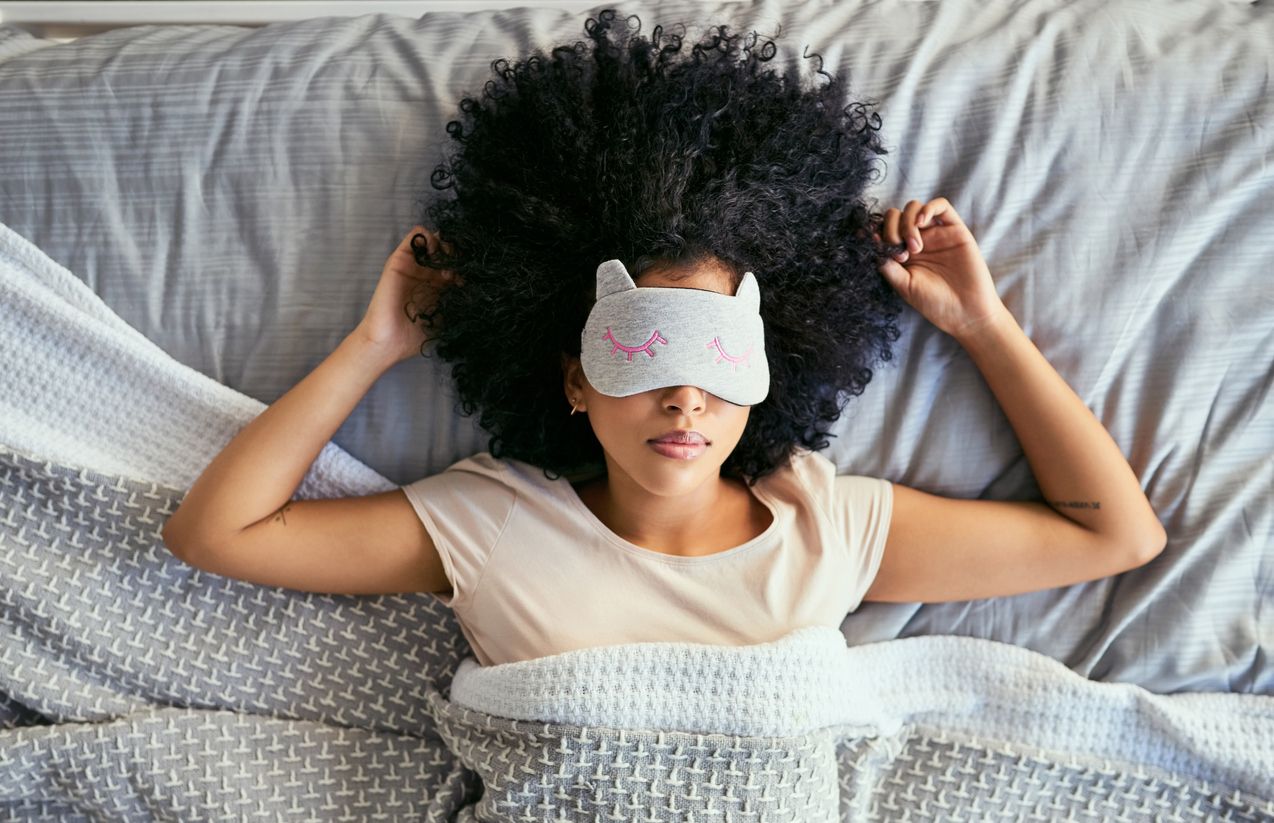
To understand the importance of beauty sleep, it's essential to explore the scientific processes that take place during sleep. Studies have shown that sleep is not only crucial for physical health but also for maintaining youthful, radiant skin. Let’s dive into the science behind it.
Collagen Production Peaks at Night
Research has shown that collagen production significantly increases during the night. This protein is one of the building blocks of healthy skin, responsible for preventing sagging, wrinkles, and other signs of ageing. By getting enough sleep, you allow your body to replenish its collagen stores, leading to firmer, smoother skin.
The Role of Growth Hormones
When you sleep, your body produces growth hormones that stimulate the production of new cells and tissues. These hormones are particularly active during deep sleep, helping your skin repair and regenerate. As a result, sleep promotes cell turnover, ensuring that dead skin cells are replaced by fresh, healthy ones.
The Impact of Cortisol on Skin Health
As mentioned earlier, stress leads to increased cortisol levels, which break down collagen and damage the skin’s structure. Sleep reduces cortisol levels, helping your skin recover from stress-induced damage. Lower cortisol also prevents the onset of inflammation and redness, which can otherwise lead to skin conditions like eczema and rosacea.
Moisture Retention During Sleep
Your skin loses more water during the night compared to the day, which is why using a good moisturiser before bed is essential. Products that contain vitamins and hydrating ingredients like hyaluronic acid can help lock in moisture and prevent the skin from becoming dry or irritated.
免費體驗
Thermage FLX 5th Generation Face Lift Treatment
1 Minute Self-Registration
Date should not be before minimal date
How Sleep Deprivation Affects Your Skin?
In our fast-paced world, many of us prioritise work, social activities, or screen time over getting a good night’s sleep. However, the long-term effects of sleep deprivation can take a significant toll on your skin’s health and appearance. Here’s a closer look at how a lack of beauty sleep can lead to a range of negative skin effects:
1. Dark Circles and Puffiness
When you skimp on sleep, your blood vessels dilate, leading to increased blood flow in the delicate under-eye area. This dilation results in the pooling of fluids, creating dark circles and puffy bags under your eyes.
The diminished circulation caused by sleep deprivation makes these signs even more pronounced. Dark circles can make you look tired and older, while puffiness can obscure your natural facial contours.
2. Wrinkles and Fine Lines
Insufficient sleep elevates cortisol levels in the body, which can degrade collagen—a protein that provides structural support and elasticity to the skin.
As collagen breaks down, your skin becomes less resilient, leading to the development of fine lines and wrinkles. Over time, chronic sleep deprivation accelerates the ageing process, making your skin appear older than it is.
3. Breakouts and Redness
Sleep deprivation disrupts the skin's natural barrier function, making it more vulnerable to environmental stressors. This compromised barrier increases the likelihood of irritation, leading to redness and breakouts.
Furthermore, lack of sleep weakens your immune system, making it harder for your body to combat inflammation and acne-causing bacteria, leading to persistent skin issues.
4. Dry Skin
Adequate sleep is vital for maintaining skin hydration and moisture balance. When you don’t get enough rest, your skin can become dry and flaky.
This lack of hydration not only dulls your complexion but can also lead to patches of dry skin, particularly on the cheeks and forehead, making your overall appearance look tired and unhealthy.
5. Increased Sensitivity
With inadequate sleep, your skin has less time to repair itself. This can result in heightened sensitivity to environmental factors like pollution and UV rays.
Increased sensitivity can lead to redness, irritation, and breakouts, complicating your skincare routine and making it more difficult to achieve a clear, smooth complexion.
6. Dull Complexion
Sleep is crucial for cellular repair and regeneration. A lack of sleep can impede this process, resulting in a dull and lifeless complexion. When you’re well-rested, your skin has a natural glow; however, sleep deprivation can strip away that luminosity, leaving your skin looking flat and tired.
7. Slower Healing and Recovery
Sleep is essential for the body’s healing processes. When you don’t get enough shut-eye, your skin’s ability to recover from minor injuries, such as cuts or blemishes, slows down significantly. This delayed healing can lead to prolonged redness and scarring, making skin conditions worse.
8. Hormonal Imbalance
Chronic sleep deprivation can disrupt the balance of hormones, including those related to stress and inflammation. Elevated levels of cortisol can trigger oil production, leading to oily skin and increased likelihood of breakouts. Hormonal fluctuations can also exacerbate existing skin conditions like acne and eczema.
9. Compromised Skin Barrier
Sleep is essential for maintaining the integrity of the skin barrier. Lack of sleep can compromise this barrier, making it less effective at keeping moisture in and irritants out. A weakened barrier can lead to dryness, sensitivity, and increased risk of infections.
10. Premature Ageing
Finally, the cumulative effects of sleep deprivation contribute to premature ageing. Not only do you experience visible signs like wrinkles and dark circles, but the overall deterioration of skin health—such as reduced elasticity, hydration, and resilience—can lead to a less youthful appearance.
6 Steps for a Successful Beauty Sleep Routine
Achieving the full benefits of beauty sleep requires a thoughtful and structured approach to your nightly routine. Here’s how you can elevate your sleep hygiene for healthier, more radiant skin:
1. Set a Regular Sleep Schedule
Try to get between 7-9 hours of quality sleep each night. Consistency is vital; going to bed and waking up at the same time daily helps regulate your body’s internal clock. This consistency improves not just sleep quality but also skin regeneration, allowing for optimal healing and repair during the night.
Use a Bedtime Alarm: Try setting a bedtime alarm on your phone to remind you when it’s time to wind down. This will help you stay committed to your sleep schedule, making it easier to fall asleep and wake up refreshed.
2. Establish a Wind-Down Period
Dedicate 30-60 minutes before bed to relax and transition your body into sleep mode. Use this time to engage in calming activities, such as reading, meditating, or practising gentle yoga, to signal to your body that it's time to prepare for rest.
Give Yourself a Relaxing Environment: Create a calming environment by dimming the lights and eliminating distractions. Consider incorporating a relaxing scent, like lavender or chamomile, through essential oils or candles to further enhance your wind-down period.
3. Cleanse and Moisturise Your Skin
Remove makeup, dirt, and oil that accumulate throughout the day with a gentle cleanser. Consider using a double-cleansing method—first with an oil-based cleanser to dissolve makeup and impurities, followed by a water-based cleanser to remove any remaining residue. This ensures that your skin can breathe and rejuvenate overnight.
Choose the Right Moisturiser: After cleansing, apply a nourishing moisturiser that suits your skin type. Look for ingredients like hyaluronic acid, which retains moisture, and peptides, which support collagen production. Consider using an overnight mask or a sleeping pack for an extra boost of hydration that can combat dryness while you sleep.
4. Create a Relaxing Environment
Ensure your bedroom is a sanctuary for sleep. Use blackout curtains to block out light, which can disrupt your circadian rhythm, and maintain a cool room temperature (ideally between 60-67°F or 15-19°C) to promote deeper sleep.
Utilise Aromatherapy: Incorporate calming scents such as lavender or chamomile through essential oils or scented candles. These aromas can promote relaxation and help reduce stress, making it easier to drift off to sleep.
5. Limit Screen Time Before Bed
The blue light emitted by screens can hinder the production of melatonin, the hormone responsible for regulating sleep. To combat this, set a “digital curfew” at least one hour before bed. During this time, engage in activities that don’t involve screens, such as journaling or listening to soothing music.
Consider Blue Light Blocking Glasses: If you must use screens in the evening, consider investing in blue light-blocking glasses. These can help reduce the impact of blue light on your sleep cycle, making it easier to fall asleep when you finally hit the bed.
6. Stay Hydrated Wisely
Drink adequate water throughout the day to keep your skin hydrated. Aim for at least eight glasses of water, but listen to your body’s needs. Foods rich in water content, like cucumbers and watermelon, can also contribute to your daily hydration.
Mind Your Evening Intake: While hydration is essential, try to limit fluid intake in the hour before bed to minimise nighttime awakenings to use the bathroom. Opt for herbal teas like chamomile or peppermint, which can aid digestion and promote relaxation without causing excessive nighttime thirst.
When Beauty Sleep Isn’t an Option: Choose Perfect Medical for Youthful Skin
In our fast-paced world, many individuals find themselves sacrificing beauty sleep for their busy schedules. However, achieving radiant, youthful skin doesn’t have to take a back seat. Enter Thermage FLX 5th Generation Face Lift Treatment, a revolutionary non-invasive solution that complements your skincare routine and helps you maintain your glow, even when sleep eludes you.
Thermage FLX 5th Generation Face Lift Treatment is a state-of-the-art skin treatment that harnesses radiofrequency technology to target the deeper layers of your skin. By heating these layers, this treatment stimulates collagen production, essential for firming and tightening the skin. Unlike topical treatments that primarily address surface concerns, Thermage works from within to enhance skin structure and elasticity.
How Thermage FLX 5th Generation Face Lift Treatment Complements Your Skin Care
While adequate sleep is vital for skin health, Thermage provides an extra layer of support, especially for those with hectic lifestyles. Here’s how it enhances your beauty routine:
1. Immediate Tightening Effects: Thermage delivers instant results by tightening the skin, helping to reduce the appearance of fine lines and sagging—benefits you can enjoy even on days when you’ve had less sleep.
2. Long-Lasting Results: The collagen-boosting effects of Thermage can last for months or even years, providing a prolonged solution to skin ageing, thus minimising the need for frequent treatments.
3. Non-Invasive Convenience: Unlike surgical options that require significant downtime, Thermage treatments take only 30 to 90 minutes, fitting seamlessly into your busy schedule. You can return to your normal activities immediately afterward, making it a practical choice for those with packed agendas.
Even if you have a consistent sleep routine, combining this treatment can amplify your results, leading to firmer, more vibrant skin. Regular treatments allow your skin to maintain its elasticity, helping to delay the visible signs of ageing.
免費體驗
Thermage FLX 5th Generation Face Lift Treatment
1 Minute Self-Registration
Date should not be before minimal date
Feel Sleepy but No Time? Let Perfect Medical Help You
Beauty sleep is not just a myth—it’s a vital part of maintaining healthy, youthful skin. But for those navigating a busy lifestyle, Thermage FLX 5th Generation Face Lift Treatment is a game-changer. It provides a potent solution for maintaining youthful skin, ensuring you don’t have to compromise on your appearance, even when your beauty sleep is lacking. Elevate your skincare routine with Perfect Medical, and embrace a more radiant you, effortlessly!
免費體驗
Thermage FLX 5th Generation Face Lift Treatment
1 Minute Self-Registration
Date should not be before minimal date
FAQ

1. How does body temperature affect the size of pores on our skin?
Body temperature can influence the dilation of pores. When your body temperature rises, such as during exercise or a hot bath, your pores may expand to help release heat. This can make them appear larger temporarily. Maintaining a stable body temperature through proper hydration and skin care can help minimise the appearance of enlarged pores.
2. What role does vitamin D play in skin health as we age?
Vitamin D is crucial for skin health, especially as we age. It aids in skin repair and regeneration, helping to reduce the signs of ageing. Research suggests that adequate levels of vitamin D can improve skin elasticity and overall texture, making it essential for adults looking to maintain youthful skin.
3. How can adults diagnose skin issues related to pore size?
Adults can diagnose skin issues related to pore size by observing changes in their skin texture and appearance. If pores appear enlarged or clogged frequently, it may be due to factors such as excess oil production, poor skincare habits, or age-related changes.
4. Why is it important to rinse your skin after using skincare products?
Rinsing your skin after using certain skincare products is essential to remove any residual product, which can clog pores and lead to breakouts. Properly rinsing ensures that your skin remains clean and can effectively absorb the nutrients from other products, such as serums or moisturisers, while reducing the risk of irritation.
5. What are researchers focusing on in relation to skincare for adults?
Researchers are increasingly focusing on how age-related changes in skin physiology affect adults' skincare needs. Studies explore how factors like hydration, pore size, and the skin's ability to store moisture decline with age. This research helps develop targeted skincare solutions that address specific concerns faced by older adults, promoting healthier skin overall.





